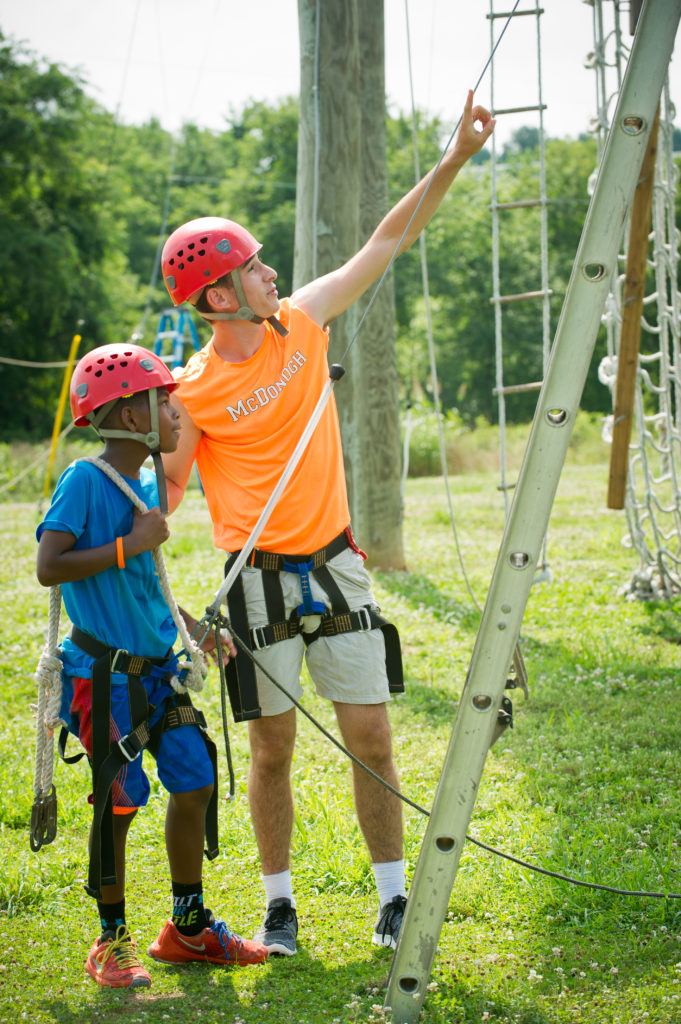
Summer has arrived, and summer camp season isn’t far behind. Baltimore’s summer camps are getting ready to welcome kids back for in-person summer camp experiences.
Are camps ready? Some are, but some are not, says the American Camp Association. In an ACA poll, half of camps responding said they are not fully hired yet for this summer. Overall, summer camps are experiencing a shortage of 18- to 25-year-olds who serve as camp counselors and camp staff.
Internships are synonymous with summer, but not every business this year is offering them due to continued remote work due to the COVID-19 pandemic. In place of internships, a summer at camp can offer college students many of the same opportunities to develop their professional skills that a conventional internship would provide.
Impacts of Summer Camp Staffing Shortages
Tom Rosenberg, ACA president and CEO, says he’s aware that some camp programs will need to limit enrollment this summer due to staffing shortages.
“When camps can’t serve children due to staffing shortages, we’re taking an isolating and disrupted year for our children and making it worse,” he says. “Our kids need camp more this year than ever before. The talent pool (18- to 25-year-old college and university students) for hiring staff this summer in the United States is challenged by a disrupted college and university schedule focused on credit recovery and staying on track to graduate. U.S. camp workers are less available this year than they’ve been in the last 50 years.”
Camp, Rosenberg adds, provide essential experiences for children by providing them the opportunity to learn and practice social-emotional life skills such as communication, decision-making, collaboration, teamwork, leadership, self-awareness, problem solving and independence. Campers can gain these skills with the support of a camp environment focused on keeping kids safe and healthy to mitigate the spread of COVID-19.
Three Reasons Why Young Adults Should Work at Camp This Summer
Working at camp offers several benefits for young adults:
- Flexible positions tailored to many qualifications. If your young adults are looking for a specific internship, they can contact one of the many camps in the Baltimore region and describe their interests and motivations. A camp may be able to tailor a summer camp position to match their requirements.
- Leadership skill development daily. At camp, young adults gain practical leadership skills that will serve them well in their college and future business careers.
- A sense of adventure. After a challenging year amid the COVID-19 pandemic, working at camp offers a short-term opportunity for young adults to try something new, different and impactful while meeting new people and experiencing new surroundings. Camp allows young adults to learn more about what they want–and don’t want–from a post-college career.
“Camp gives young adults the opportunity to get experience working in a supportive environment,” says Steve Cusick, director of Summer at Friends at the Friends School of Baltimore. “Everyone is working to achieve a common goal. A big part of what we do is mentoring and helping young adults.” Summer at Friends hires approximately 150 staff members and volunteers for its summer camp programming. The counselor-in-training initiative, geared to 14- to 15-year-olds, offers its own distinct experience for individuals who want to become camp counselors.
“For many people, summer camp is their first form of employment. It’s a resume starter … a good jumping-off point for young people to find their footing in the real word,” he adds. Some of the young adults who started their careers with Summer at Friends have gone on to pursuing work with robotics and NASA, he says.
More Details About the State of Summer Camp
“Camps have implemented strict, layered mitigation strategies, including masking, cohorting, physical distancing, cleaning and maintaining healthy facilities, proper handwashing and respiratory etiquette to safely operate in person,” Rosenberg says.
Even with these COVID-19 mitigation efforts in place, the 2021 ACA Camper Enrollment Snapshot reveals that camps are witnessing an increase in new family registrations for summer 2021.
As summer camps move forward from the effects of COVID-19 on their operations in 2020, Cusick believes that the interpersonal and social skills one can get from the in-person camp experience are invaluable. They support the development of “talent that’s needed more than ever.”









